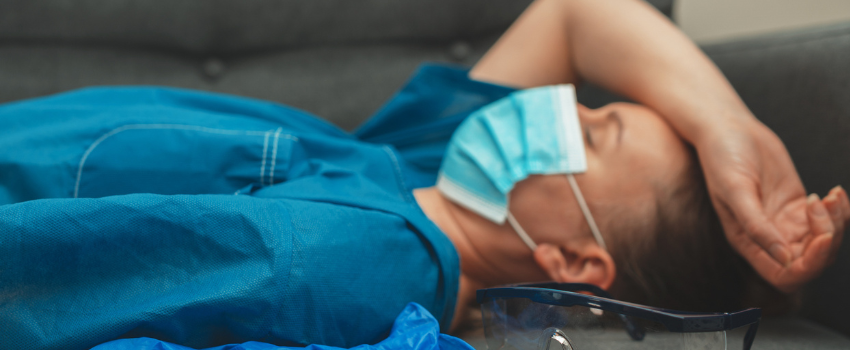Wearable technology and sleep interventions to improve emotional wellbeing of shift workers
PhD Impact Story
More than 1 in 9 workers across job sectors in the UK (over 3 million people) regularly work night shifts. Among health and social work professionals, 1 in 3 are involved in a shift work system. Long-term shift work (especially at night) can adversely impact the physical, psychological, and social wellbeing of individuals. Poor sleep is also the second most common health complaint in the UK, with around 1 in 5 people regularly sleeping poorly at night.
Robert Hickman's PhD research focuses on the negative emotions and low mood the following day which can be caused by sleep loss among shift workers. Currently there is a lack of research looking at mood and emotional experiences in more 'real world' settings (such as at work) and their association with sleep.
The project which is in its third year focuses on the disruption of sleep-wake patterns among NHS staff and the impact on mood and wellbeing. Healthcare professionals in the NHS often work shifts (frequently at night) and so are prone to sleep loss. Poor sleep amongst NHS staff can have numerous adverse outcomes: increased medical errors, impaired attention, cognitive performance and diagnostic ability.
Although sleep and emotions are closely linked, few studies have considered the role of daily emotional experiences within settings such as the home or workplace, and their impact on sleep; Rob will use methods to capture these emotional events and mood fluctuations as they occur day-to-day.
Understanding the impact of sleep loss on emotional wellbeing
First, Robert is exploring the impact of sleep loss on the behaviour, mood, and wellbeing of NHS nurses. Smartphone-based cognitive tasks, mood measures, sleep and emotional diaries are completed daily. Factors which might protect NHS workers or improve toleration of shift work such as chronotype and post-shift recovery activities are also collected. Additional measures include stress, burnout levels and emotional regulation.
In the second phase of the study, Robert is exploring a novel sleep intervention. Nurses wear ‘high-tech’ headphones before bed each day. Sensors inside the headphones are paired with a smartphone app to monitor sleep and an audio library delivers personalised relaxation exercises and sleep techniques.
Growing need for sleep interventions for public health
There is a growing need for interventions specifically designed to address and prevent the effects of sleep deprivation and fatigue arising from night shifts. Existing interventions to address sleep disturbances among healthcare workers have primarily been focused at the organisational or institutional level (e.g., adjusting shift schedules or improving the working environment).
This PhD project explores a more personalised sleep intervention, which has the potential to be widely disseminable, easily accessible and could have long-lasting public health and societal benefits. It also aims to provide a basis to identify markers of sleep disturbance and understand the feasibility and acceptability of potential treatments designed to improve sleep and mood.
The project could also have implications for clinical research into sleep and mood disorders (e.g. depression, bipolar disorder) and / or schizophrenia, for which sleep disruption are core features.
Collaborations across universities and industry
Industry partner ‘Kokoon’ has been involved in developing the ‘high-tech’ headphones for the sleep intervention.
Robert is also collaborating with academics at Imperial College London who are providing the cognitive tasks for the study; these tasks were originally designed for BBC Horizon's ‘The Great British Intelligence Test’. Imperial College London and King's researchers have previously collaborated on research using these tasks.
You can find more information on Robert’s study and research in the CSI Lab here: www.csilab.org/research
IMPACT AREAS:






